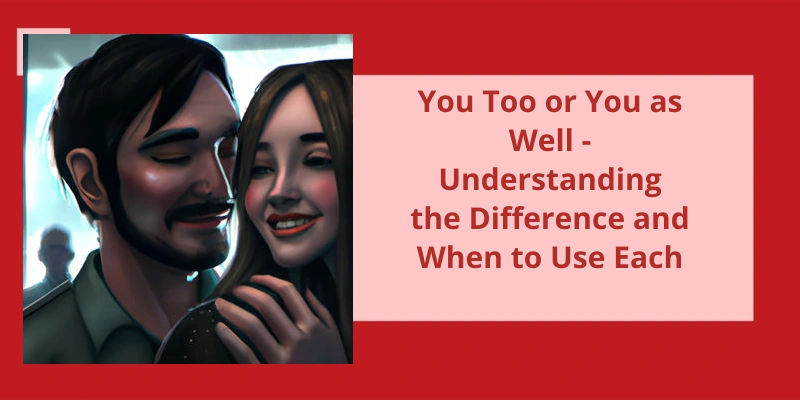Have you ever found yourself in a situation where you snap at someone, only to immediately feel a wave of guilt wash over you? It's a common experience that many of us can relate to, yet it’s causes and implications remain shrouded in mystery. Understanding the secrets behind this phenomenon can shed light on the complex dynamics of human behavior and provide valuable insights into our emotional well-being. From the delicate interplay of our emotions to the underlying psychological factors at play, this article unravels the enigma of why we snap and then feel guilty, inviting you to delve into the depths of your own psyche and discover the hidden secrets that lie within.
How Do I Stop Feeling Guilty About Keeping Secrets?
It isn’t uncommon to feel guilty about keeping secrets. When we hold onto information that others aren’t aware of, we can often be burdened by the weight of that knowledge. However, it’s important to remember that feeling guilty is a natural response and can actually be helpful in guiding us towards making positive changes in our behavior.
By shifting our perspective and understanding that guilt is a signal for change, we can begin to address the issue at hand. Taking responsibility for our behavior and acknowledging that we’ve the power to change can help alleviate some of the guilt we may be experiencing.
Another helpful strategy is to open up and communicate with someone we trust. Keeping secrets may make us feel isolated and alone. By sharing our burden with someone we can confide in, we can gain perspective, support, and guidance. This can help to alleviate guilt by providing a space for understanding and forgiveness.
Additionally, it can be helpful to establish boundaries and make a commitment to honesty moving forward. By setting clear expectations for ourselves and others, we can create a framework for open and honest communication. This can help to prevent future secrets and reduce the guilt associated with keeping them.
Finally, it’s important to practice self-compassion and forgiveness. We’re all human and we all make mistakes. It’s unrealistic to expect ourselves to be perfect at all times. By being kind and understanding towards ourselves, we can begin to release some of the guilt and embrace the opportunity for growth and change.
If you find yourself experiencing sudden feelings of guilt without a clear reason, it’s essential to consider the potential impact on your mental health. These emotions could stem from various sources, including anxiety, burnout, or unresolved trauma. Seeking professional help from a licensed therapist can provide valuable insight into the root causes of this guilt and assist in developing effective coping mechanisms.
Why Am I All of a Sudden Feeling Guilty?
If you find yourself suddenly feeling guilty without any apparent reason, it may be a sign of underlying mental health issues. These feelings can be triggered by various factors such as anxiety, burnout, or past trauma. It’s important to remember that guilt is a complex emotion and understanding it’s root causes can be beneficial in finding effective coping strategies.
It can lead to excessive worry, overthinking, and a constant fear of making mistakes. This can make even trivial situations feel like a reason to feel guilty. Therapy can help you identify the underlying causes of your anxiety and provide tools to manage it more effectively, reducing feelings of guilt.
Burnout, another common cause of unexplained guilt, is characterized by exhaustion and emotional fatigue. When youre overwhelmed with responsibilities and feel like youre constantly falling short, guilt can creep in. It’s essential to take care of your mental and emotional well-being by setting boundaries and practicing self-care. A therapist can help you explore coping strategies specific to your situation.
Past trauma can also contribute to sudden feelings of guilt. Working with a therapist experienced in trauma can help you process your experiences, heal, and develop healthier perspectives on guilt and self-blame.
A licensed therapist can play a crucial role in helping you understand the underlying causes of your guilt and provide effective strategies to cope with it. They can guide you through self-reflection, help you challenge harmful thought patterns, and encourage self-compassion.
Differentiating Between Healthy Guilt and Unhealthy Guilt: Explaining the Difference Between Guilt That Motivates Positive Change and Guilt That Is Excessive, Irrational, or Self-Destructive.
- Understanding healthy guilt:
- Healthy guilt leads to personal growth and positive change.
- It arises from genuine remorse for one’s actions.
- Healthy guilt motivates individuals to make amends and learn from their mistakes.
- Recognizing unhealthy guilt:
- Unhealthy guilt is excessive, irrational, and self-destructive.
- It may stem from unrealistic expectations or perfectionism.
- Unhealthy guilt often leads to feelings of worthlessness or shame.
- The effects of unhealthy guilt:
- Unhealthy guilt hinders personal growth and positive change.
- It can lead to chronic stress, anxiety, and depression.
- Unhealthy guilt can strain relationships and undermine one’s self-esteem.
- Coping with unhealthy guilt:
- Seeking support from loved ones or a therapist can help address unhealthy guilt.
- Practicing self-compassion and self-forgiveness is essential in overcoming unhealthy guilt.
- Focusing on personal growth and self-improvement can shift the mindset from unhealthy guilt to healthy guilt.
One common struggle many people face is feeling guilty for no apparent reason. It can be challenging to navigate these feelings, especially when you can’t identify a specific wrongdoing. Guilt can sometimes serve as a defense mechanism against helplessness, and it can also be projected onto oneself. To overcome these feelings, practicing mindfulness, replacing negative self-talk with empathy, and refraining from judgment are helpful strategies. Additionally, seeking support from a therapist can provide valuable insights and guidance on how to alleviate this unnecessary guilt.
How Do I Stop Feeling Guilty for No Reason?
Have you ever experienced an overwhelming sense of guilt for no apparent reason? It’s a common yet perplexing phenomenon that many people struggle with. The feeling of guilt can be so consuming that it often leads to self-doubt and negative self-talk. So, how can you stop feeling guilty when youve done nothing wrong?
One possible explanation for this unfounded guilt is that it serves as a defense mechanism against feelings of helplessness. When we feel helpless in a certain situation, we may unconsciously redirect those feelings towards ourselves and create a sense of guilt. This allows us to regain a sense of control and avoid the discomfort of helplessness.
Another reason behind this misplaced guilt could be projected guilt. Sometimes, we internalize the feelings of guilt projected onto us by others. We may start believing that we’re truly at fault, even when there’s no logical reason for it.
Practicing mindfulness can also be a helpful strategy in overcoming unnecessary guilt. By staying present in the moment and observing our thoughts without judgment, we can gain a better understanding of why we feel guilty and challenge those irrational beliefs. Mindfulness teaches us to detach ourselves from negative emotions and cultivate self-compassion.
Changing our negative self-talk is another crucial step in stopping unwarranted guilt. Instead of berating ourselves, we can try replacing negative thoughts with empathy for ourselves. We can remind ourselves that we’re only human, bound to make mistakes, and deserving of forgiveness and understanding.
It’s essential to stop judging ourselves harshly and accept our imperfections. No one is perfect, and it’s unrealistic to expect ourselves to be. By embracing our flaws and understanding that they don’t define our worth, we can free ourselves from the burden of unnecessary guilt.
If these strategies don’t seem to alleviate your guilt, it may be beneficial to seek the help of a therapist. They can provide a safe and nonjudgmental space for you to explore the root causes of your guilt and develop coping mechanisms to manage it. Remember, you don’t have to navigate these emotions alone.
Strategies for Letting Go of Guilt From Past Actions
- Reflect on the lessons learned from past actions.
- Practice self-forgiveness and remind yourself that everyone makes mistakes.
- Focus on the present moment and future goals instead of dwelling on the past.
- Seek support from loved ones or a therapist to process and release guilt.
- Engage in activities that bring you joy and help distract from feelings of guilt.
- Take responsibility for your actions, apologize if necessary, and make amends.
- Challenge negative thoughts and replace them with positive affirmations.
- Cultivate self-compassion and treat yourself with kindness and understanding.
- Let go of unrealistic expectations and embrace imperfection.
- Practice mindfulness or meditation to cultivate self-awareness and acceptance.
Source: How To Stop Feeling Guilty When You’ve Done Nothing Wrong
However, understanding the root of guilt goes beyond simple self-evaluation and perception. It delves into the intricate workings of our minds and the complex interplay of our thoughts, emotions, and societal norms. By exploring the underlying factors that contribute to feelings of guilt, we can gain deeper insights into this multifaceted emotion and find ways to navigate it’s impact on our lives.
What Is the Root of Guilt?
Guilt, at it’s core, stems from a complex interplay of self-awareness and social evaluation. It’s a self-conscious emotion that arises when we believe we’ve contributed to a negative outcome, whether intentionally or unintentionally. We examine our actions, motives, and intentions, trying to decipher our role in causing harm or distress.
We internalize societal norms and moral standards, leading us to feel guilty when we fall short of these expectations. The fear of being judged and rejected by others can intensify our guilt, making it a powerful emotional force.
It arises when our actions or decisions contradict our personal values and beliefs. We hold ourselves accountable for not living up to our own ethical standards and experience guilt as a result.
Moreover, guilt can also be influenced by cultural and familial factors. The values and expectations instilled in us through our upbringing play a crucial role in shaping our perception of guilt. Cultural and familial norms regarding responsibility, duty, and accountability can heavily impact the intensity and expression of our guilt.
It’s a self-conscious emotion that emerges from the internal struggle to reconcile our actions with our values and the fear of societal judgment. Understanding these underlying factors can help us navigate guilt, fostering self-reflection and growth rather than being overwhelmed by it’s weight.
Guilt, a complex emotional response, can manifest in different ways depending on the underlying factors and circumstances. Studies suggest that guilt can be categorized into two main types: deontological guilt, stemming from a violation of personal values or morals, and altruistic guilt, arising from the awareness of causing harm to someone else. These classifications provide insight into the distinct aspects of guilt and how individuals experience and respond to this powerful emotion.
What Are the Kinds of Guilt?
Guilt is a complex emotion that can manifest in different forms and for various reasons. Some research suggests that there are two primary types of guilt: deontological guilt and altruistic guilt.
Deontological guilt is the guilt that arises when we go against our own personal values or morals. It occurs when we break our own internal rules or standards, leading to a sense of self-condemnation. For example, if we cheat on a test or lie to someone, we may experience deontological guilt because we’ve violated our own principles of honesty or integrity.
On the other hand, altruistic guilt stems from causing harm or distress to others. It’s often empathetic in nature, arising from a deep sense of concern and compassion for the well-being of others. For instance, if we accidentally bump into someone and cause them to drop their belongings, we may feel guilty for the inconvenience or distress we’ve caused. This type of guilt is driven by empathy and a genuine desire to prevent harm to others.
Both deontological and altruistic guilt can have significant impacts on our emotional well-being. They may lead to feelings of anxiety, regret, and self-criticism. Whether we’re grappling with the guilt of our own actions or the guilt of unintentionally hurting someone else, these emotions can be overwhelming and difficult to navigate.
It’s essential to acknowledge our emotions, reflect on our actions, and make amends if necessary. By taking responsibility for our actions and learning from our mistakes, we can strive for personal growth and move towards a healthier and more compassionate mindset. Seeking support from trusted individuals, such as friends or therapists, can also be beneficial in processing and managing these complex emotions. Ultimately, by addressing and tackling our feelings of guilt, we can pave the way for personal healing and growth.
The Psychology of Guilt: Understanding the Underlying Mechanisms and Processes Involved in Experiencing Guilt.
Guilt is a complex emotion that arises when we believe we’ve done something wrong or violated our moral code. It involves a sense of self-blame and remorse for our actions or failures to act. Understanding the psychology of guilt can shed light on the underlying mechanisms and processes that contribute to this emotional experience.
One theory suggests that guilt serves as an adaptive function, promoting pro-social behavior and cooperation within social groups. It acts as a moral compass, guiding us towards appropriate actions and deterring us from engaging in harmful or unethical behaviors. When we feel guilty, it motivates us to make amends, apologize, or take corrective actions to restore harmony in relationships.
The experience of guilt is influenced by various factors, including our individual values, upbringing, cultural norms, and personal beliefs. These factors shape our moral judgments, dictating what we perceive as right or wrong. Consequently, guilt can vary across individuals and cultures, reflecting different moral standards and expectations.
Guilt often coexists with shame, but they’re distinct emotions. While guilt is typically focused on our actions or behaviors, shame is more directed at our sense of self. Guilt may lead to feelings of remorse and the desire to make amends, whereas shame tends to be associated with feelings of worthlessness and self-condemnation.
It’s important to note that not all guilt is rational or justified. Sometimes, we may experience excessive or unwarranted guilt, known as irrational guilt. This can stem from unrealistic expectations, perfectionism, or distorted thinking patterns. Addressing irrational guilt typically involves challenging negative self-perceptions, seeking support, and reframing our beliefs about responsibility and personal worth.
In summary, understanding the psychology of guilt involves recognizing it’s role in guiding moral behavior and the various factors that shape our experience of guilt. By exploring the underlying mechanisms and processes, we can gain insights into how guilt influences our thoughts, emotions, and actions, ultimately leading to personal growth and positive change.
Is guilt-tripping controlling? Guilt tripping is often designed to manipulate other people by preying on their emotions and feelings of guilt or responsibility. This can be a form of toxic behavior that can have detrimental effects on a person’s well-being as well as their relationships. Let’s explore the impact of guilt tripping and how it can be addressed in a healthy way.
Is Guilt-Tripping Controlling?
Guilt-tripping, at it’s core, is a manipulative tactic that aims to control others by exploiting their emotions and sense of responsibility. It can take various forms, such as emotional blackmail, passive-aggressive behavior, or playing the victim.
This can lead to feelings of anger, frustration, and resentment in the person being guilt-tripped, as they may start to question their own worth and judgment.
Moreover, guilt-tripping can create a harmful dynamic in relationships. Instead of open communication and understanding, the guilt tripper uses guilt to get what they want or to make the other person conform to their desires. This dynamic is inherently controlling and can erode trust and intimacy in the relationship. Over time, the person being guilt-tripped may feel suffocated, controlled, or even trapped in the relationship, leading to further strain on their emotional well-being.
Furthermore, guilt-tripping often fails to address the root issues or conflicts in a healthy and productive manner. This not only prevents true resolution but also perpetuates a cycle of guilt, resentment, and negative emotions.
In their quest for control, they may become disconnected from their own emotions and lose the ability to empathize with others. This can result in a breakdown of authentic connections and hinder personal growth and self-awareness.
Conclusion
From a psychological perspective, it becomes apparent that suppressed anger or frustration, combined with an inability to effectively communicate or manage these emotions, can lead to explosive outbursts. Moreover, underlying feelings of guilt may stem from societal norms and personal beliefs that dictate the appropriate expression of anger. The pressure to conform and meet societal expectations can heighten the remorse one feels after snapping. It’s imperative to acknowledge that understanding the intricacies of this phenomenon requires a multifaceted approach, taking into account not only individual psychology but also the societal factors that influence our emotional responses. By untangling these hidden secrets, we can pave a path towards healthier, more constructive ways of dealing with anger and, ultimately, finding genuine emotional fulfillment.






